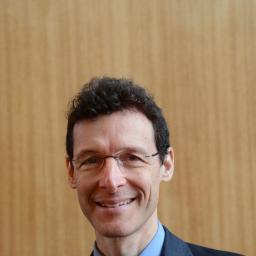Creative Tensions Around Pluralism
- “Rabbi Lev, how come we have to go to Shaharit services? It’s a pluralistic day school!” “
- Rabbi Lev, why can girls wear leggings, but the boys have to wear khakis? It’s a pluralistic school!”
- “Why do boys have to wear a kippa in Jewish studies classes? Can’t it be optional? Isn’t this a pluralistic school?” \
- “Shouldn’t we be hearing more from the pro-Israel community?”
- “Why don’t we hear more from the left?”
Attending this conference, Inside Jewish Day Schools, brought a welcome immersion in Jewish day school dilemmas, tensions, successes, and questions, some of which greet me every morning when I walk into my classroom. Participants came to the conference from universities, professional training programs, and from classrooms and administrative wings of Jewish day schools throughout the country. Each session provided opportunities to hear about research and practice; to question whose voices are loudest; and to consider whose voices from among our many stakeholders might go unheard and stay silent at any given moment.
As the Director of Jewish Studies at Jack M. Barrack Hebrew Academy in the Philadelphia area, I oversee the Jewish studies curriculum and Jewish life at our 6th-12th grade pluralistic school, and each day brings questions that call us to take seriously our commitment to pluralism:
Should we emphasize depth or breadth?
Should we continue to emphasize the teaching of Jewish texts in the original Hebrew or should we provide more materials in translation?
When our students say that they love our school because it feels like camp, should we take them seriously and loosen up a little?
Alternatively, when our teachers say that they wish our Jewish studies classes were more like AP Chem, because then our students will take our classes more seriously, should we take them seriously and toughen up a little?
A single conference can’t answer every question, but it certainly validated that my colleagues and I at Barrack are not at all alone in wrestling with these questions. I concluded from my time at the conference that each school constitutes its own culture and that, like an anthropologist, we are going to need to bring these questions back to our own people because only we can answer what will work for our unique parent and student body. We know that our students love to learn many different things so they appreciate breadth, but they also appreciate coming out of their studies with a feeling of expertise, so they appreciate depth. We know that some students love hunkering down and decoding the Hebrew and Aramaic, as if they are solving a Raiders of the Lost Ark riddle while others much prefer a translation so that they can jump right to the great ideas.
On the one hand, we can do more to cultivate a camp-like feel (how about some occasional singing!), but on the other hand, when we tried a color war with competition during the school day, many of our students told us not to go that far. We learned that the informality of warm teacher-student relations doesn’t need to extend to first names and a lack of rigor, but it does help to lighten the mood when we allow students to celebrate, dance a little, and have a designated night off from assessments and even from homework every now and then.
Many of our students say that they do indeed take Jewish studies classes seriously and that they show their commitment not by looking for more homework and tests, but by participating, sharing, and by looking for meaning in the moral and theological issues they study.
As one school head put it about her pluralistic school, “Pluralism means that sooner or later, everyone is going to be offended by something.” That’s probably true for Barrack Hebrew Academy as well. I aspire for the opposite: in our program of Jewish studies, we hope that sooner or later, everyone is going to be inspired by something, challenged to see something with a new perspective, ready to ask questions of meaning and to relish the growth that comes from listening to others provide answers they hadn’t considered before.
When’s the next conference? I’m eager to continue the conversation and to bring some colleagues with me!
Rabbi Judd Kruger Levingston, Ph.D., serves as Director of Jewish Studies at Jack M. Barrack Hebrew Academy, where he coordinates the curriculum, oversees Jewish life, advises the Honor Council, and teaches students in the 8th, 10th and 12th grades. He is the author of Sowing the Seeds of Character: the Moral Education of Adolescents in Public and Private Schools (Praeger, 2009) and he is the designated recipient of the 2019-2020 Sylvia and Moshe Ettenberg Fellowship for a research project entitled, “The Moral Case for Play.”
To learn more about the conference, click here.



